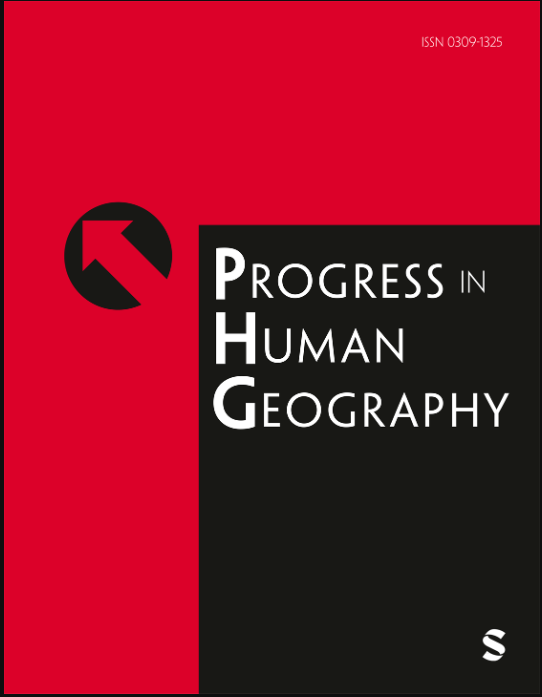A politics of conviction: The refusal of colonial carcerality in Palestinian graffiti
IF 6.1
1区 社会学
Q1 GEOGRAPHY
引用次数: 0
Abstract
In this visual essay, I curate and annotate nine photos of Palestinian prisoner graffiti, foregrounding a Palestinian politics of conviction. Prisoner graffiti is a prominent genre of Palestinian street art, countering Israel's system of colonial carcerality that attempts to dispossess and displace Palestinians. Israeli colonial carcerality functions not only through the “small prison” of Israeli detention, but through the “large prison” of Israeli colonial occupation and apartheid. The distinct forms that this incarceration takes across the fragments of Palestine—from the lands occupied in 1948, 1967, and the diaspora—all aim to crush a Palestinian will to resist. Israel works to construct its carceral systems as inescapable, suggesting to Palestinians that they have no choice but to submit to their colonisation. Against this colonial carcerality, we find in Palestinian prisoner graffiti what I term a politics of conviction. Persisting through their conviction and imprisonment under Israeli colonial law, Palestinians cultivate a conviction in liberation. Directly countering the apparent inevitability of incarceration and the reification of carceral systems, this politics of conviction asserts the inevitability of al-ḥurriya (freedom) from both the small prison and the large prison. This conviction in liberation is constituted by a range of feelings, including love for the prisoner and the dignity that they embody. I suggest that this politics of conviction might form the affective basis of a distinctly Palestinian abolitionism—working to abolish the colonial structures that uphold both the small and large prisons.信念的政治:巴勒斯坦涂鸦中对殖民残暴的拒绝
在这篇视觉文章中,我整理并注释了九张巴勒斯坦囚犯涂鸦的照片,突显了巴勒斯坦的信念政治。囚犯涂鸦是巴勒斯坦街头艺术的一个重要流派,反对以色列试图剥夺和取代巴勒斯坦人的殖民统治制度。以色列的殖民统治不仅通过以色列拘留的“小监狱”,而且通过以色列殖民占领和种族隔离的“大监狱”发挥作用。从1948年、1967年被占领的土地到散居的巴勒斯坦人,这种监禁的不同形式都旨在粉碎巴勒斯坦人的反抗意志。以色列努力将其收容系统构建为不可避免的,向巴勒斯坦人暗示他们别无选择,只能屈服于他们的殖民统治。针对这种殖民主义的残暴,我们在巴勒斯坦囚犯的涂鸦中发现了我称之为信念政治的东西。巴勒斯坦人坚持在以色列殖民法下被定罪和监禁,培养了对解放的信念。直接对抗监禁的必然性和监狱系统的具体化,这种信念政治断言,无论从小监狱还是大监狱,al-ḥurriya(自由)都是不可避免的。这种对解放的信念是由一系列的感情构成的,包括对囚犯的爱和他们所体现的尊严。我认为,这种信念政治可能构成一种独特的巴勒斯坦废奴主义的情感基础——努力废除维持大小监狱的殖民结构。
本文章由计算机程序翻译,如有差异,请以英文原文为准。
求助全文
约1分钟内获得全文
求助全文
来源期刊

Progress in Human Geography
GEOGRAPHY-
CiteScore
16.40
自引率
7.00%
发文量
56
期刊介绍:
Progress in Human Geography is the peer-review journal of choice for those wanting to know about the state of the art in all areas of research in the field of human geography - philosophical, theoretical, thematic, methodological or empirical. Concerned primarily with critical reviews of current research, PiHG enables a space for debate about questions, concepts and findings of formative influence in human geography.
 求助内容:
求助内容: 应助结果提醒方式:
应助结果提醒方式:


